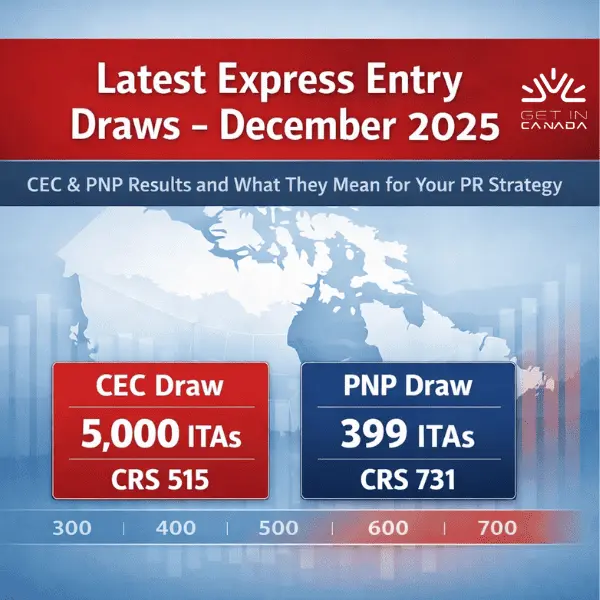Understanding Health Insurance Options for Immigrants in Canada

Accessing healthcare is a crucial part of starting life in a new country. In Canada, the publicly funded healthcare system provides excellent medical services—but not everyone is covered immediately. For this reason, it’s essential that new immigrants, international students, workers, and visitors understand their health insurance options.
This guide breaks down everything you need to know about health insurance for newcomers in Canada, including how to get covered, what is (and isn’t) included in public plans, and why temporary or private insurance may be essential during your first few months.
1. What Is the Canadian Health Insurance System and How Does It Work?
Canada’s health system is primarily publicly funded and administered at the provincial level. Residents receive coverage for medically necessary services through their province’s insurance plan—such as OHIP in Ontario or MSP in British Columbia.
However, newcomers to Canada may face a waiting period or may not qualify immediately based on their status. That’s where temporary or private health insurance becomes crucial.
2. Who Needs Private or Temporary Health Insurance in Canada?
Health insurance for newcomers in Canada is essential if you fall into one of these categories:
- New permanent residents in a waiting period (e.g., 3 months in Ontario or BC)
- International students who are not eligible for provincial coverage
- Temporary foreign workers not enrolled in public insurance
- Super visa applicants (parents and grandparents)
- Refugee claimants and asylum seekers
Without coverage, any medical emergency could lead to bills in the thousands.
Find out if you are eligible to get in Canada →
3. Types of Health Insurance Available for Newcomers
3.1 Public Health Insurance by Province
Each province in Canada offers its own public health plan. You must apply once eligible.
| Province | Plan Name | Waiting Period | Apply at |
|---|---|---|---|
| Ontario | OHIP | 3 months | ServiceOntario |
| British Columbia | MSP | 3 months | MSP Enrolment |
| Alberta | AHCIP | None | AHCIP Info |
| Quebec | RAMQ | Varies | RAMQ Quebec |
3.2 Private Health Insurance for Newcomers
If you’re not eligible for public coverage right away—or need more than public plans offer—private health insurance is your best option.
What private insurance can cover:
- Emergency medical care
- Prescription drugs
- Hospital stays
- Ambulance services
- Dental & vision (add-ons)
- Maternity and mental health (in some plans)
Popular providers:
- Manulife CoverMe
- Blue Cross
- Sun Life
- Allianz Global Assistance
- Tugo
Private plans are especially important during waiting periods or for Super Visa and student applicants.
4. Why Is Health Insurance Important for Super Visa Applicants?
To apply for a Super Visa, your parent or grandparent must show proof of:
- A Canadian health insurance policy
- Minimum coverage of $100,000 CAD
- Valid for at least one year
- Must cover hospitalization and repatriation
Without this insurance, their visa can be denied—and medical care during their stay could become financially overwhelming.
Find out if you are eligible to get in Canada →
5. What Is Not Covered by Public Health Insurance in Canada?
Even if you qualify for public healthcare, not everything is included. These services are usually not covered:
- Dental care (cleanings, fillings, surgeries)
- Prescription medication (outside hospital)
- Glasses and eye exams
- Physiotherapy, chiropractic, massage therapy
- Private hospital rooms
- Mental health counseling (in many provinces)
Many Canadians—including newcomers—purchase extended health coverage through work or personal plans.
6. What If You Get Sick Without Insurance?
Getting sick without coverage in Canada is risky:
- ER visits can cost $1,000+
- A basic surgery could cost $5,000–$20,000
- Specialist consultations are often $200–$400 per visit
Some clinics will require pre-payment or turn you away. That’s why having even basic emergency insurance is critical as a newcomer.
7. How Much Does Private Health Insurance Cost in Canada?
Prices vary depending on your age, health, duration of coverage, and what’s included. Here’s a rough monthly estimate:
| Plan Type | Cost (Monthly) |
|---|---|
| Emergency-only (basic) | C$60–100 |
| International students | C$50–90 |
| Super visa (parents) | C$100–250 |
| Family plans (2+ kids) | C$200–400+ |
Tip: Use tools like CompareMyRates or InsuranceHotline to compare plans easily.
Find out if you are eligible to get in Canada →
8. Extended Coverage from Employers or Educational Institutions
If you’re working full-time, ask your employer if your job includes group health insurance. Many offer plans that cover:
- Prescriptions
- Dental & vision
- Mental health therapy
- Family benefits
For students, many Canadian colleges include a mandatory or optional health insurance plan (e.g., UHIP in Ontario).
9. Where to Get Help with Health Insurance
Newcomer settlement agencies are a great source of help. They can assist you with:
- Understanding eligibility rules
- Filling out forms
- Finding doctors accepting new patients
- Referring you to affordable clinics
Trusted organizations:
Find out if you are eligible to get in Canada →
10. Interactive FAQ: Health Insurance for Newcomers in Canada
Q1: Do I need health insurance before arriving in Canada?
Yes. If your province has a waiting period or you’re not eligible for public care, you must get private insurance to avoid costly bills.
Q2: How do I know if I qualify for public health insurance?
Check with your province’s health authority or visit Canada.ca – Health Card Info.
Q3: Can I buy insurance for my parents or visiting relatives?
Yes. They must have private health coverage if visiting under a Super Visa. Plans must be valid for 1 year with at least $100,000 CAD coverage.
Q4: Does public insurance cover dental and vision?
No. These are typically only covered by private insurance or employer health benefits.
Q5: Can international students get health insurance?
Yes. Some provinces provide public coverage (e.g., BC, Alberta), while others (e.g., Ontario) require you to buy private plans through your school.
11. Choosing the Right Health Insurance Plan
Securing health insurance for newcomers in Canada is one of the smartest moves you can make after landing. Whether you qualify for public healthcare, need temporary private coverage, or want to extend your protection through employer plans, being proactive will help avoid costly surprises.
Step-by-step recap:
- Check if you’re eligible for your province’s health plan.
- Apply immediately or get private insurance for the waiting period.
- Include your family members on your plan if applicable.
- Consider extended coverage for dental, prescriptions, and more.
- Reach out to newcomer agencies for free support.











